Pakistan is an epitome of rich culture and diversity. People have immense amounts of talent. Within the realm of music, several pop and folk singers have made Pakistani people proud. They have sung about their aesthetic roots with their fusions, lyrics and voices.
Allan Faqeer: A Sindhi Folk Singer
Singers such as Nusrat Fateh Ali Khan and Rahat Fateh Ali Khan have had the honor of performing in Nobel Ceremonies and United Nations Seminars. Atif Aslam, Sheraz Upal, and Rahat Fateh Ali Khan are among the most popular playback singers in India. Our singers and their music have promoted a softer image of Pakistan. Where there is war and hunger and poverty, there is melody to make everything bearable.
Among the several music geniuses of Pakistan, there is a humble personality. He plays a traditional musical instrument with turban over his head. His name is Allan Faqeer. He made the listeners get in tuned to his soulful voice and graceful dance movements. He is among the pioneer singers who paved the way for those who followed the path of singing.
Presidential Award Winner Allan Faqeer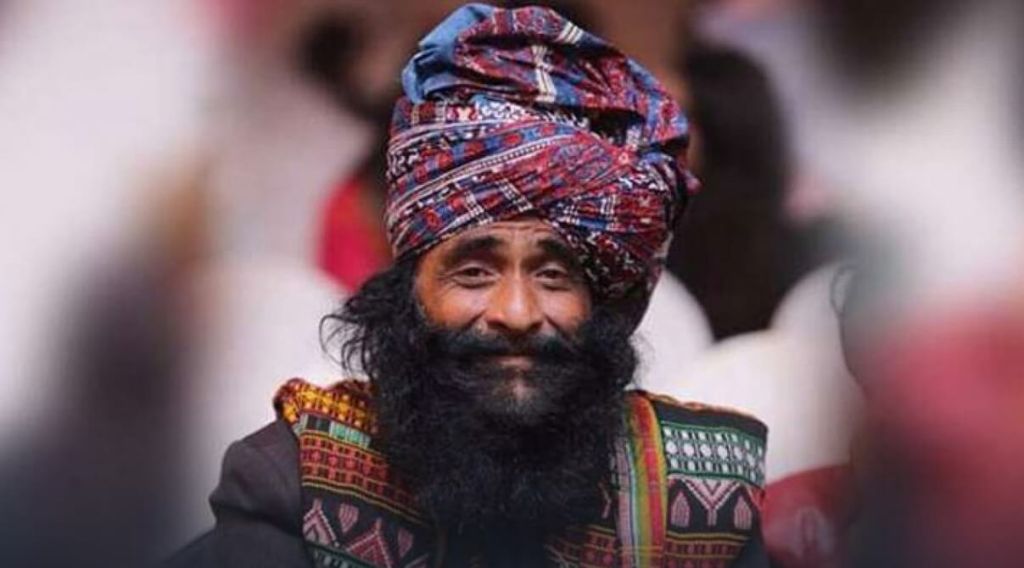
Presidential award winner Allan Faqeer, belonging to the Mangrachi Tribe, was born in JamShoro 1932 in the village of Amri in Sindh. The Mangrachi Tribe belongs to the rural Sindh and are quite popular for their arts & music. The inherited lure towards music made him learn the classical instrument, Tambura, from childhood. He started off his musical career by beating drums and singing local songs at ceremonies & marriage occasions.
His real name was Ali Bakhsh. He got discovered by one of the producers of Pakistan Radio. From mazars and urs, and began performing on radio Hyderabad. Radio provided him a much larger platform and he began to gain popularity all across the country. He finally got an offer to perform for PTV and his fame touched the sky after that. Allan didn’t let fame get to his head, and he continued to perform in the mazaars as well. He was a singer of Sindhi language, but he occasionally did Urdu songs as well.
One of his most famous hits was Allay Munjh Mar Wara, also known as the Sindhi Sehra. Because it got so famous, many singers over the course of time have re-sang it as a tribute to Allan Faqeer and the land of Sindh. The most recent rendition is Ali Zafar’s which he sang with Abid Brohi and Urooj Fatima.
Developing a Taste For The Sufi Music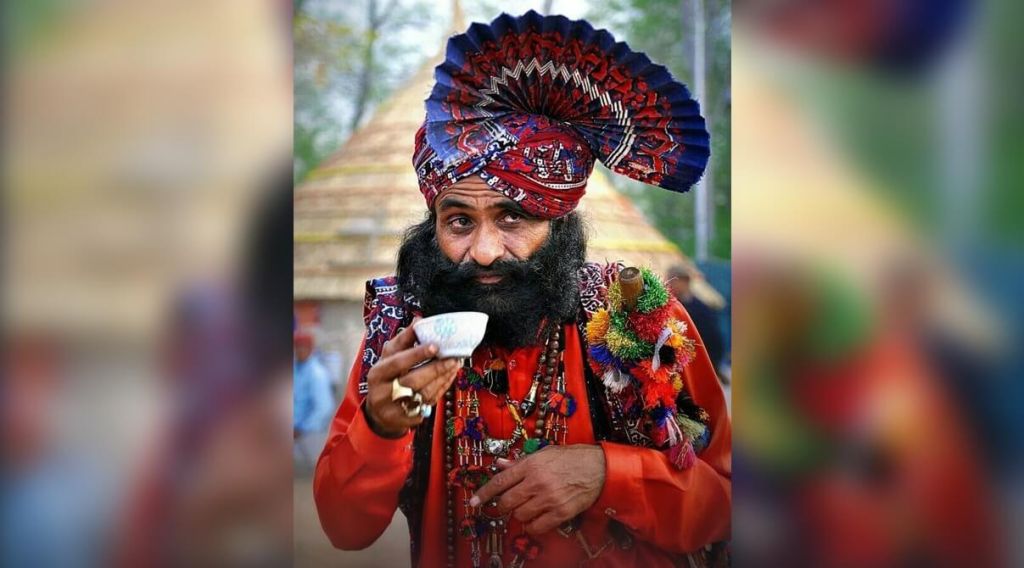
Life took a turn for Allan Faqeer after the tragic demise of his mother. That was when he decided to move out to Manjhand for better opportunities. A village between Sehwan and Hydreabad, he began to sit in the company of renowned folk singers. That’s when he developed a taste for the sufi music and decided to dedicate his life towards it. He made the Shrine of Renowned Sufi Poet, Shah Abdul Latif Bhittai as his permanent abode. Then, he joined the Shah Faqeers there to sing the poetry of Latif Bhitta, known then as Wahi.
Today, Pakistan has a burgeoning sufi music scene. Navid Akhtar writes for Barbican that his dance symbolizes a passion to return to God. The notion of separation from God is a common theme in Sufi poetry. The poet celebrates unity with God through death.
The Sufi music and twirl is traced back to Rumi. But, Allan Faqir was a pioneer of it in Pakistan. Singers such as Abida Parveen, Sabri Brothers, Nusrat Fateh Ali Khan etc followed suit. His soulful Sufi music was an ointment to many broken hearts.
Related: Exploring The Significance of Dance in Sufism
Debut on Television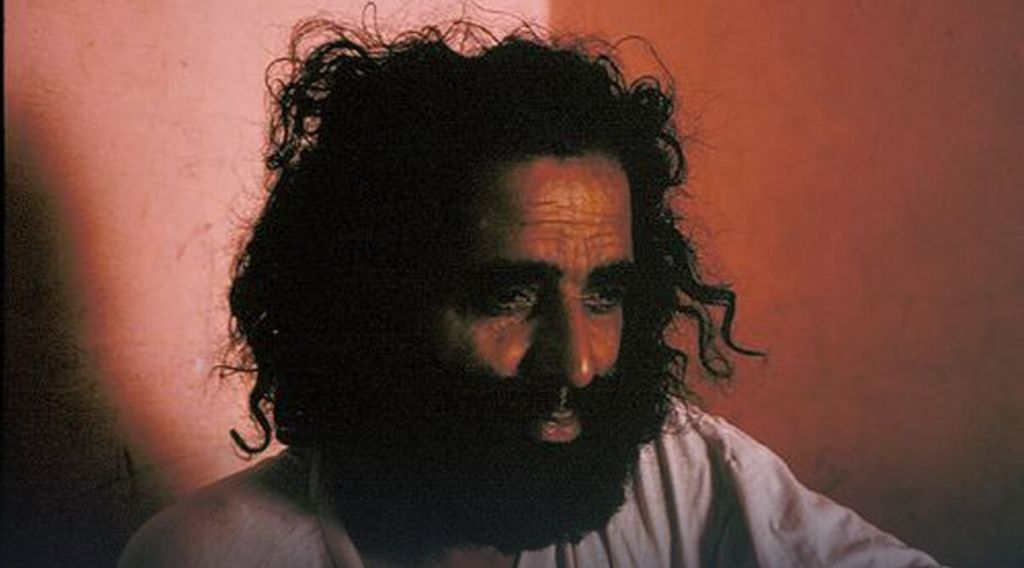
Allan Faqeer got the lifetime opportunity of singing at the biggest stage of his life from the Hyderabad Radio Station. This was where he recited the poetry of Shah Abdul Latif Bhittai. Soon his melodious voice reached the ears of then one of the renowned producers of the Pakistan Television Corporation. He got the second biggest break of his life to appear on the National Television in the 70s. Ever since, he made a mission to represent the culture of Pakistan, especially Sindh across the globe. His popularity rose to even more fame. He got the opportunity to perform globally in various countries. These include: Germany, USA, UAE as well as the UK.
Popular Songs by Allan Faqeer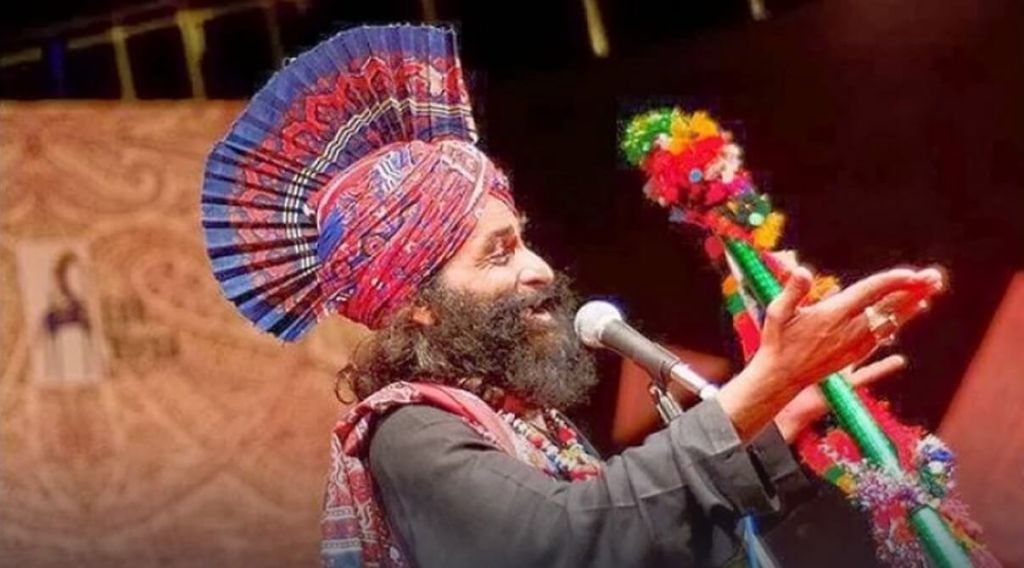
Allan Faqeer sang many songs in the Sindhi language. One of the most popular being Tiri Pawandan as well as the national song of Itne Barae Jeewan Sagar Mein. Though being quite popular in Sindh alread, he gained further popularity nationwide. This happened in the late 80s. He sang the most popular ‘Humma Humma’ in collaboration with Muhammad Ali Sheikhi. It was a script from Allah Allah Kar Bhaiyya. The song was a unique fusion of pop and classical music that took by storm both local and foreigh audience. This song paved the path for Pakistani music’s appreciation globally. Apart from performing on PTV and Radio Pakistan, he also sang many songs for various Sindhi films as well. Apart from singing in Sindhi and Urdu language, Allan Faqeer proved his maestro in Punjabi and Saraiki too.
Related: The 12th Annual Mystic Music Sufi Festival: The Mysticism of Sufis in the World of Today
Receiving the Presidential Award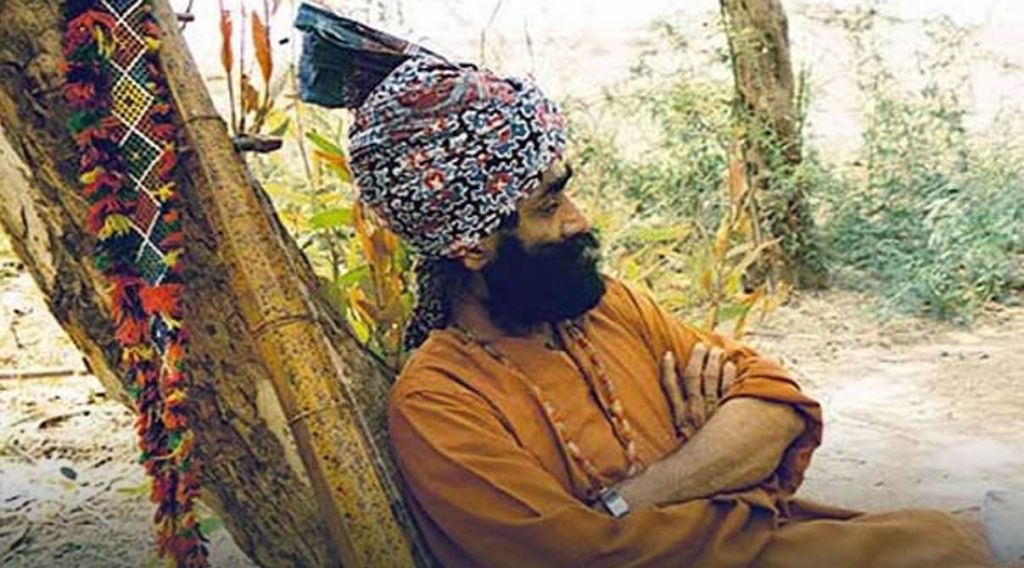
Allan Faqeer received the Presidential Award for his contribution to the musical and art industry of Pakistan. This happened in 1980 by the Government of Pakistan. The Presidential Award is also known as the Presidential Pride of Performance Award in Pakistan. This award goes to people from all walks of life. It honors those who have contributed to Pakistan’s image. It is the highest national award for both national and international individuals. This award is bestowed on the recipients on the Pakistan Resolution Day. Notable recipients of the award include Abida Parveen, Mualna Tariq Jamil, and Fehmida Riaz.
In recognition of his services, he was further bestowed by the Shah Latif, Kandhkot and Shabaz Qalandar Award in 1992.
Allan Faqeer is an epitome of soulful voice, melodious performance, rhetoric yet symbolic style of Sufi dance. His voice complements his mysterious yet supernatural performance. His songs were a fusion of the philosophical thoughts and innovation within the musical domain. Allan Faqeer left his fans devastated with his death. He departed in a private hospital in Karachi on 4th July, 2000 after battling with illness.
Allan Faqeer is a singer who is still remembered for his finesse and talent all over the world. He will always be known for his mystic appearance with colorful beads and malas, a shock of a black beard, and his calm and humble demeanor. His song Alif Allah, Meem Muhammad, Aen Ali is among the most popular sufi songs in Pakistan. The Sketches’ rendition of Alif Allah was a tribute to Allan Faqeer genius and mastery over music. The entire music community reveres Allan Faqeer as some one who gave beautiful music and soulful experience to the listeners.